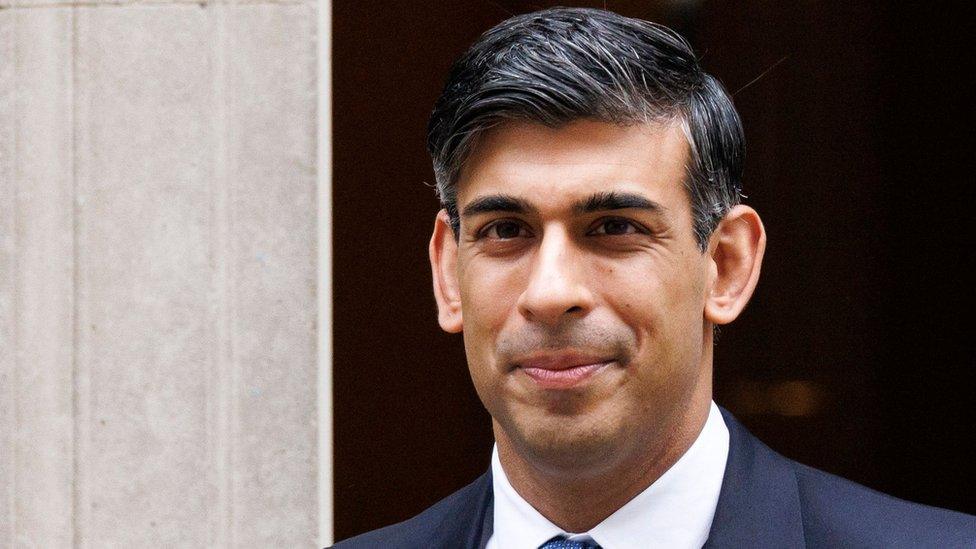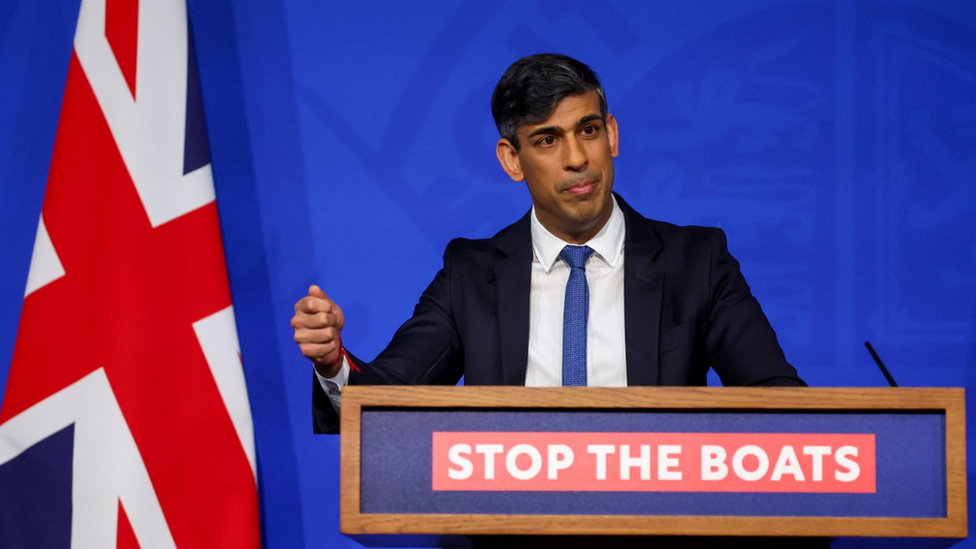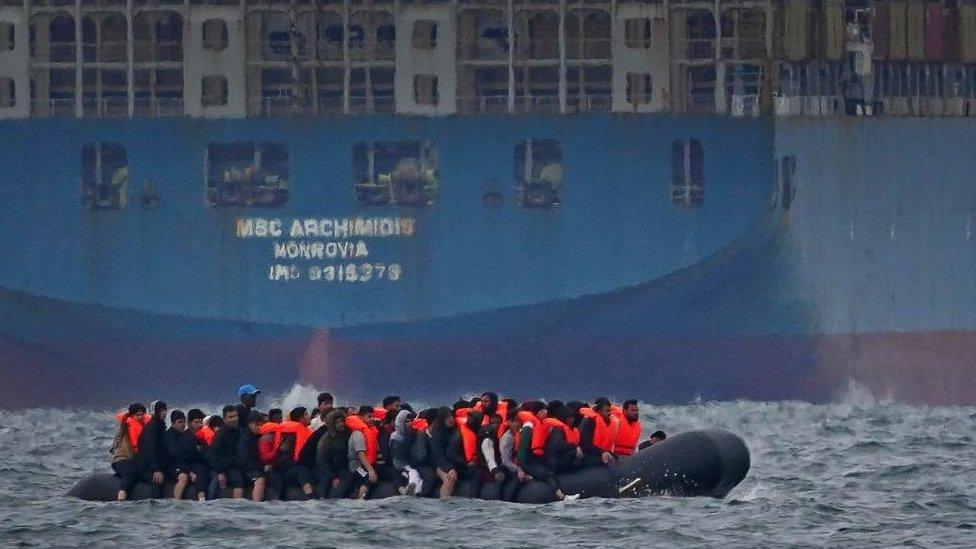Rishi Sunak urges Lords to back Rwanda bill
- Published
- comments
The prime minister answered questions on the Rwanda bill during Thursday's press conference
Prime Minister Rishi Sunak has urged the House of Lords to pass his flagship Rwanda bill, as he warned peers not to "frustrate the will of the people".
Giving a press conference after the legislation was approved by MPs, Mr Sunak said it was now up to the Lords to "do the right thing".
He told the BBC the government was still aiming for deportation flights to take off by the spring.
But he added that peers needed to pass the bill "as quickly as possible".
The legislation, which seeks to revive the government's plan to send some asylum seekers to the east African country, was passed by 320 to 276 votes in the House of Commons on Wednesday.
Although in the end only 11 Conservative MPs voted against the legislation as a whole, Mr Sunak still suffered his biggest rebellion since becoming prime minister when around 60 backed changes they said would toughen up the legislation.
The rebels argue the bill will not work in its current form as they believe flights will still be blocked by legal challenges.
The aim of the policy is to deter people from crossing the Channel in small boats, which Mr Sunak has made a key priority of his premiership.
However, Labour says it an expensive "gimmick", which is unworkable and unlawful.
Before becoming law, the bill must be approved by the House of Lords, where it is expected to face strong opposition.
The Lords are unlikely to vote it down completely but they can propose changes which would delay its progress.
Crossbench peer Lord Carlile, a leading lawyer and former independent reviewer of terrorism legislation, described the bill as "a step towards totalitarianism".
He told BBC Radio 4's Today programme many peers would see it as "a step too far" and an "illegitimate interference by politics with the law".
Mr Sunak urged peers to pass the bill unamended to get flights up and running, describing this as "an urgent national priority".
"The treaty with Rwanda is signed and the legislation which deems Rwanda a safe country has been passed unamended in our elected chamber," he said.
"There is now only one question. Will the opposition in the appointed House of Lords try and frustrate the will of the people as expressed by the elected House? Or will they get on board and do the right thing?"
Labour's shadow immigration minister Stephen Kinnock said the PM's comments were "bizarre".
"The House of Lords exists to scrutinise legislation," he said, adding that this function was "very important in our democracy".
Rishi Sunak’s Rwanda plan battle isn’t over yet
Questioned by journalists after the press conference over when flights carrying asylum seekers would leave for Rwanda, the prime minister did not give a concrete date.
Asked if he could guarantee flights would take off before the next general election, which is expected this year, Mr Sunak said: "I've been crystal clear that we want to do this as quickly as possible… and it's now up to the House of Lords."
However, in an interview with the BBC later, he said: "We're working to the same timetable that we've always been working to... and that means spring but obviously the House of Lords needs to pass its legislation as quickly as possible."
Peers are due to begin debating the Rwanda bill before the end of this month, with the most crucial votes held in early March, according to senior House of Lords sources.
After this, the legislation will enter "ping pong", where the Commons and Lords try to reconcile their versions of the bill.
This is likely to involve the government trying to remove any changes inserted by the Lords.
If all goes to plan the bill should pass around mid-March.
Even after it becomes law, Mr Sunak's critics believe legal challenges could still delay or block deportation flights.
Debate over the bill has exposed the deep divisions within the Conservative Party.
On Tuesday two deputy party chairmen - Lee Anderson and Brendan Clarke-Smith - as well as a ministerial aide, Jane Stevenson, quit their roles to rebel against the government and vote for changes to the bill.
The BBC has been told a handful of Tory MPs have submitted letters calling for a vote of confidence in Mr Sunak.
However, this is almost impossible to prove unless an MP chooses to publish their letter.
It would take 15% of the parliamentary party - currently 53 MPs - to submit letters to trigger a no-confidence vote.
After this a majority of Tory MPs would have to vote against Mr Sunak in a secret ballot for him to be removed as leader.
- Published18 January 2024

- Published18 January 2024
- Published13 June 2024

- Published17 January 2024
